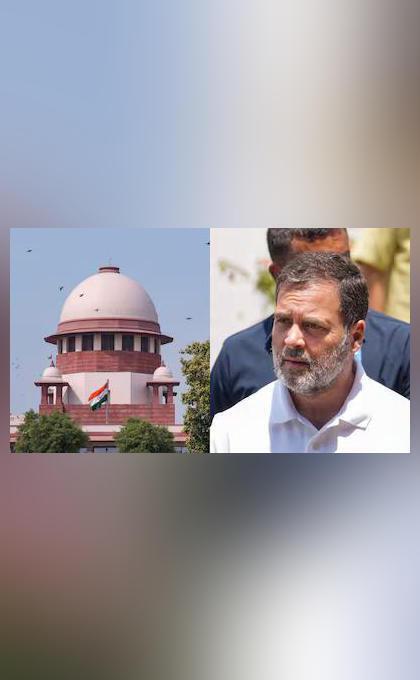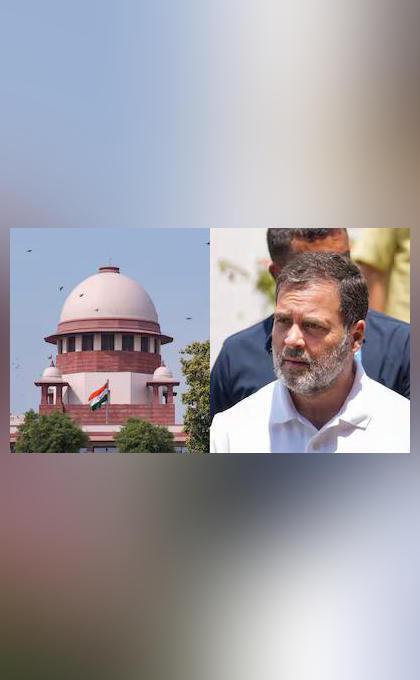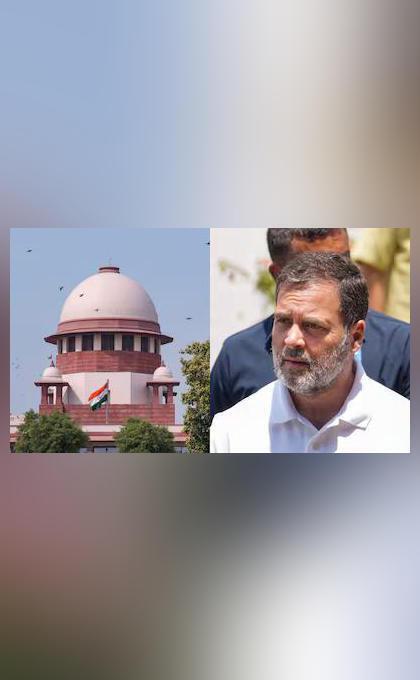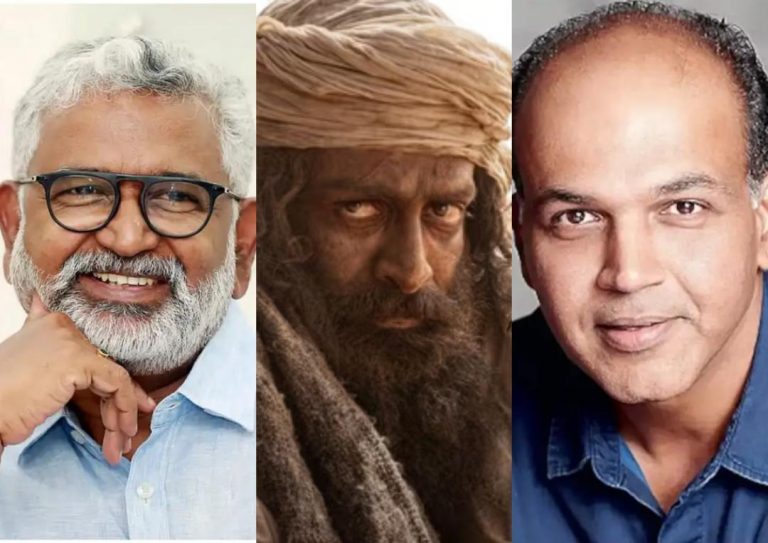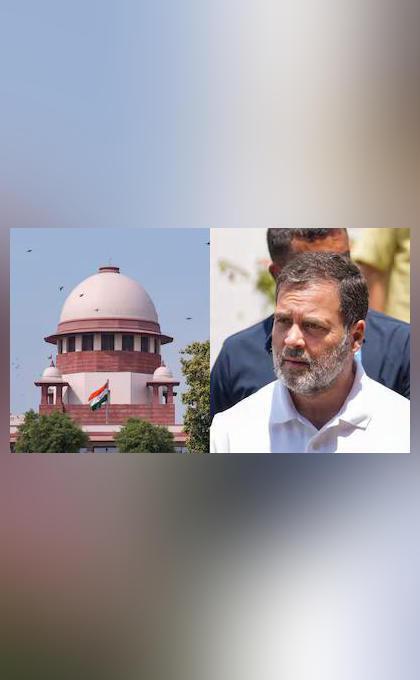
Why Ask on Social Media & Not in Parliament: SC to Rahul on ‘Land Grab’ Claim
The Supreme Court has taken a stern stance against Congress leader Rahul Gandhi, reprimanding him for making unsubstantiated claims about China occupying 2,000 sq km of Indian land. The court’s rebuke came while staying a defamation case against Rahul for his remarks about the Indian Army.
In a ruling that has sent shockwaves across the political spectrum, the Supreme Court has asked Rahul Gandhi to explain how he knows that China occupied 2,000 sq km of Indian land. The court’s question is a straightforward one, and yet, it highlights the lack of accountability and responsibility shown by some politicians in their public utterances.
Rahul Gandhi had made the “land grab” claim in 2020, sparking widespread outrage and concern about the country’s territorial integrity. However, the Supreme Court has now taken the view that such serious allegations should not be made without concrete evidence or proof.
The court’s rebuke is a timely reminder of the importance of responsible journalism and politics. In an era where social media has become a primary platform for news dissemination and political discourse, it is essential that individuals and organizations take care to verify the accuracy of information before sharing it.
The Supreme Court’s question to Rahul Gandhi is a simple one: if he is so convinced that China occupied 2,000 sq km of Indian land, why did he not raise this issue in Parliament? Why did he not use his position as a Member of Parliament to ask questions and seek answers from the government on this matter?
The answer, of course, is that Rahul Gandhi is more interested in making sensational claims on social media than in holding constructive discussions in Parliament. By making unsubstantiated claims, Rahul Gandhi is able to garner attention and create a sense of outrage and indignation among his followers. However, this approach is not only irresponsible but also undermines the credibility of the political process.
The Supreme Court’s intervention is a welcome one, as it highlights the need for politicians to be accountable for their words and actions. In a democratic society, politicians have a responsibility to engage in informed and responsible public discourse, rather than making reckless and unsubstantiated claims.
The court’s rebuke is also a reminder of the importance of fact-checking and verification in journalism. In an era where misinformation and disinformation are rampant, it is essential that journalists and media organizations take care to verify the accuracy of information before publishing it.
The Supreme Court’s ruling is a significant development in the ongoing debate about the role of social media in politics. While social media has the potential to be a powerful tool for political engagement and discussion, it also has the potential to be a platform for misinformation and disinformation.
The court’s question to Rahul Gandhi – why did he not ask these questions in Parliament rather than on social media? – is a relevant one. In Parliament, politicians are accountable to their constituents and are required to engage in constructive and respectful debate. In contrast, social media is a platform where anyone can make any claim or allegation, without being held accountable for the truth or accuracy of those claims.
The Supreme Court’s ruling is a reminder that politicians must be held accountable for their words and actions, and that the truth and accuracy of information must be paramount in public discourse.
In conclusion, the Supreme Court’s rebuke of Rahul Gandhi is a welcome development in the ongoing debate about the role of social media in politics. The court’s question – why did he not ask these questions in Parliament rather than on social media? – is a relevant one, and serves as a reminder of the importance of responsible journalism and politics.
Source:
